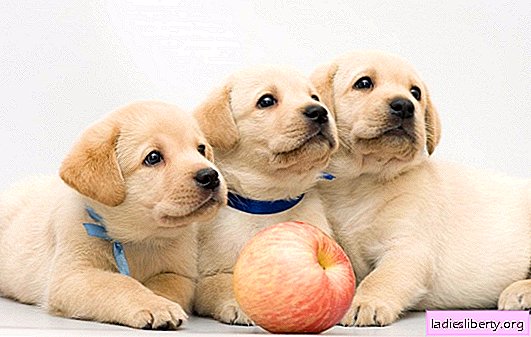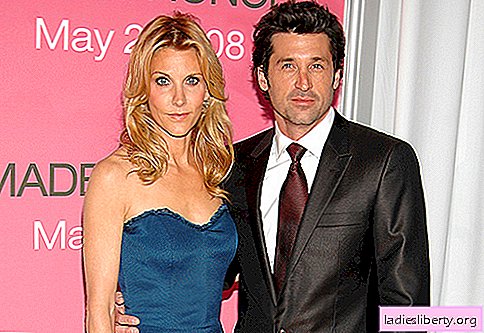
Poor or improper feeding of a growing dog, lack of useful substances and minerals can cause vitamin deficiency and a number of diseases, such as rickets, bone dysplasia, impaired respiratory function and scurvy.
That is why, at an early age, the puppy needs to be given vitamins - indispensable components that the body cannot produce on its own.
When to start giving puppies vitamins. Do healthy dogs need additional substances?
Vitamin therapy is always prescribed for sick pets, as well as animals with low immunity. Many owners are wondering if the growing body needs vitamins if the puppy is healthy and consumes natural food. Veterinarians agree that even the most versatile homemade food cannot replace the food that a dog would receive in its natural habitat. You need to start supplementing food with microelements from the eighth week of the baby's life.
Another thing when it comes to high-quality dry food or canned food. Reliable manufacturers add all useful substances to such a balanced diet, so there is no need for additional vitamins and supplements. However, buying a regular inexpensive dog food, you cannot be sure that the pet receives enough essential minerals.
Vitamin deficiency in puppies and its symptoms
A lack of vitamins can cause the development of vitamin deficiency, which entails a decrease in the protective functions of the body and the appearance of serious pathologies. The peak of the disease most often occurs during the inactive sun - winter and early spring. Its causes are unbalanced nutrition, violation of the gastrointestinal tract, helminthic invasion, infections and medication. The risk group also includes puppies that have lost their breast milk early.
Each novice dog breeder must learn to recognize the first signs of vitamin deficiency:
• growth retardation;
• the appearance of dandruff, itching;
• change in the structure of the skin;
• watery eyes;
• hair loss;
• apathy and drowsiness;
• refusal of food or taste anomalies (for example, eating land);
• lowering body temperature.
If the above symptoms appear, consult your veterinarian.
What vitamins and minerals do puppies need?
For the correct development of the dog during the period of active growth, regular intake of irreplaceable useful components is necessary.
Vitamins
Retinol (Vitamin A) is important for the health of the eyes, bones, skin tissues and mucous membranes. It is preferable to give in the form of natural beta-carotene. Deficiency leads to exhaustion, a tendency to pneumonia, hair loss, rickets, pathologies of vision and smell. During molting, the body's need for retinol rises.
Group B vitamins contribute to the normal functioning of the nervous system, metabolism, the production of the required amount of red blood cells, and the proper formation of an energy reserve. The low content of the drug is characterized by gastrointestinal problems (diarrhea, vomiting), anemia and mental disorders.
Vitamin E protects cells and counteracts premature aging. Its lack leads to reproductive system disorders. Tocopherol regulates the metabolism of hormones, creatine and carbohydrates and is a powerful antioxidant. Its absence threatens muscular dystrophy and cardiovascular diseases.
Vitamin D is responsible for maintaining blood calcium. Calcium, in turn, is important for bone formation. Therefore, the lack of vitamin D is almost always accompanied by impaired skeletal development. Attention! In the warm season, when the sun is most active, the drug should be given with extreme caution. Its excess leads to jaw deformation and calcification of vital organs.
Vitamin K is an indispensable liver aid. It provides good blood coagulability, prevents the formation of kidney stones, improves the condition of tooth tissues and the absorption of calcium. A lack of vitamin can trigger the development of diabetes.
Trace elements and fatty acids
The second serious nutritional issue for puppies is a lack of minerals such as calcium and phosphorus. These elements are of particular importance for the development of the skeleton. While an adult dog weighing 30 kg requires about 1.7 g of such building bone material per day, a puppy weighing up to 10 kg needs 5 g daily. Many owners, when compiling a diet, often do not take this fact into account, which leads to impaired growth.
The key to shiny coat and healthy skin is polyunsaturated fatty acids, which the animal does not synthesize. Their sources are fish oil and vegetable oils: linseed, evening primrose, safflower, hemp, and blackcurrant. Introduce these components in the feed should be year-round. The daily dose of fish oil for a puppy should not exceed 180 mg per kilogram of weight, Omega 6 - 36 mg / kg. Acids are given with food.
If a specialist has prescribed your pet to take corrective supplements, do not rush to run after them to the pharmacy. Human medicines are not designed to meet the needs of dogs. You need to buy such drugs in specialized zoological stores.
How to give a puppy vitamins
The main thing that every owner should know about is that an overdose of vitamins is more dangerous than their deficiency. Never increase the portion indicated in the manual, hoping to get a quick result. Reception courses should not last more than one month. For babies aged 2-6 months, supplements are given for 2 weeks, then making an obligatory five-day break. Do not rest your pet with all the trace elements and nutrients at once - this can result in hypervitaminosis.
Attempts to get a puppy to swallow vitamins are not always successful. Most often, babies just spit out tasteless pills. The easiest way to trick an intractable pet is to hide the medicine in a piece of meat, minced meat or your favorite treat. If this method does not work, then open the mouth of the animal, put a tablet or capsule on the root of the tongue, close the jaw, tilt your head back a little and wait until the dog swallows. Do not forget to praise your favorite!
When deciding to add healthy ingredients to your diet, do not engage in amateur activities. Only a veterinarian can determine if your puppy needs vitamins, prescribe a dose and give the necessary recommendations regarding the frequency of administration and compatibility of drugs. Remember that excess entails no less serious consequences for the health of the animal than vitamin deficiency.











